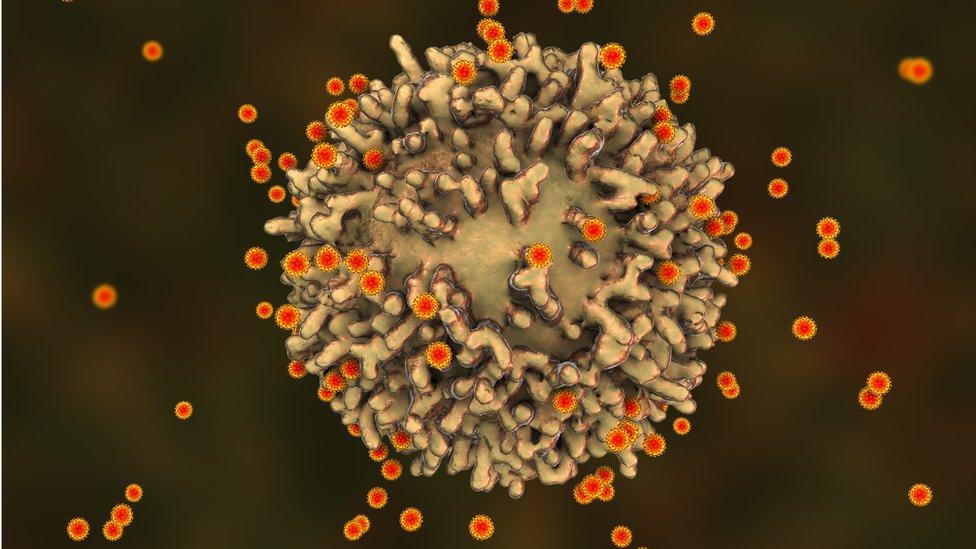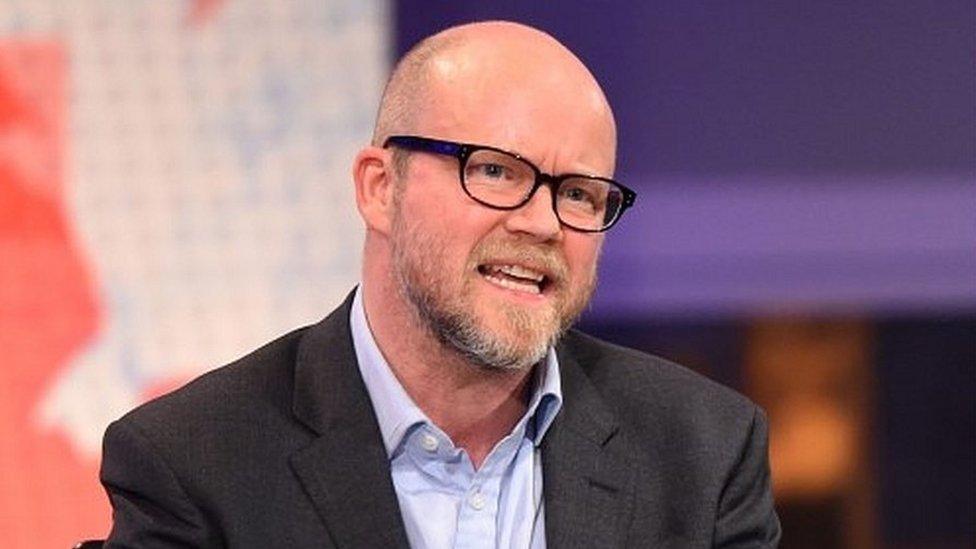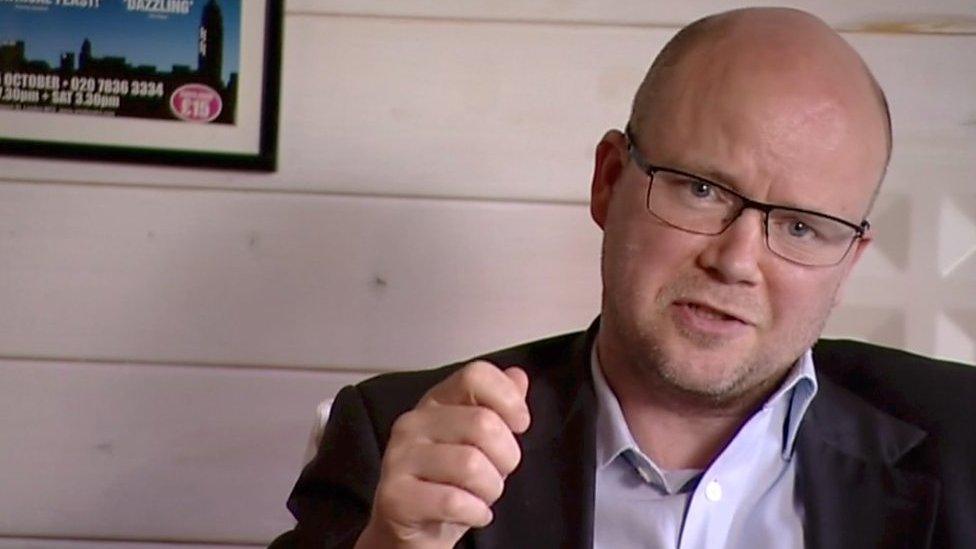Toby Young: Telegraph coronavirus column 'significantly misleading'
- Published

A Telegraph column on coronavirus by Toby Young breached press accuracy regulations
The Daily Telegraph must publish a correction over a "significantly misleading" column written by Toby Young, press regulator Ipso has ruled.
The July 2020 article claimed the common cold could provide "natural immunity" to Covid-19 and London was "probably approaching herd immunity".
But on Thursday Ipso found, external the paper had "failed to take care not to publish inaccurate and misleading information".
Ipso said the paper "did not accept it has breached the [Editors] Code".
It said the newspaper said that Young's comments on immunity referred to "cross-reactive T-cells" that work to combat the virus.
Immunity 'misrepresented'
However, the media watchdog sided with the complainant, James Whitehead, in its decision, who said that while these cells "may lessen the impact of Covid-19" after infection, they "would not confer 'natural immunity'"
The ruling added Young's statement "misrepresented the nature of immunity".
Ipso also found Young's suggestion that "London is probably approaching herd immunity, even though only 17% tested positive [for antibodies] in the most recent seroprevalence survey" could be misleading.

There is an antibody response and a cellular response to the coronavirus
The Telegraph referred to surveys listed in an article on Young's own Lockdown Sceptics website in its defence, but the Ipso committee judged these did not accurately reflect "how herd immunity is reached and whether it exists in London".
The ruling concluded that the paper had breached accuracy standards on a topic of "public importance", but deemed a correction an appropriate sanction, given the level of "significant scientific uncertainty" at the time of publication.
Young told the BBC: "I think Ipso has been put in a difficult position because our scientific understanding of the virus is constantly evolving and there is a great deal about it that scientists still disagree about.
'Over-emphatic'
"While some of the things I wrote in that article would be contested by some scientists, they would be confirmed by others... Have we achieved herd immunity in London? I think that's an open question and the 'case' data is unreliable because of the well-documented shortcomings of the PCR test.
"I may have been over-emphatic in putting the anti-lockdown case, but it's not as if the advocates of a pro-lockdown position are any less emphatic.
"Don't forget the WHO initially estimated the global IFR [infection fatality rate] of Covid-19 at 3.4%. The consensus now is that it's less than 1% and almost certainly a lot less. Lots of journalists faithfully reported that alarmist figure. Why hasn't Ipso reprimanded them?"
Last week Young told BBC Newsnight that some of his claims from an article he wrote in June had been "wrong", where he had said a second spike of Covid-19 had "refused to materialise" and that one-metre rule is "unnecessary".
Allow X content?
This article contains content provided by X. We ask for your permission before anything is loaded, as they may be using cookies and other technologies. You may want to read X’s cookie policy, external and privacy policy, external before accepting. To view this content choose ‘accept and continue’.

Tweets deleted 'not related to ruling'
At the start of the year, Young, an associate editor at The Spectator and general secretary of the Free Speech Union, installed an app that auto-deletes tweets more than a week old.
He said he did so to protect against "politically-motivated offence archaeologists" - a move unrelated to the Ipso ruling.
Reacting to criticism of his past comments, external on coronavirus from Neil O'Brien, Conservative MP for Harborough, Oadby and Wigston, after the deletion, Young then tweeted a defence of his stance against lockdowns.
"This is an important public debate to have," he wrote, external, "both because it helps us assess the present government's management of the pandemic and because it will help us prepare better for the next one."
The UK entered a second national lockdown last week in a bid to control spiralling virus infection rates. On Wednesday, the UK saw its biggest daily death figure since the start of the pandemic, with 1,564 deaths.

Follow us on Facebook, external or on Twitter @BBCNewsEnts, external. If you have a story suggestion email entertainment.news@bbc.co.uk, external.
Related topics
- Published27 February 2018

- Published9 January 2018

- Published9 January 2018

- Published3 January 2018
